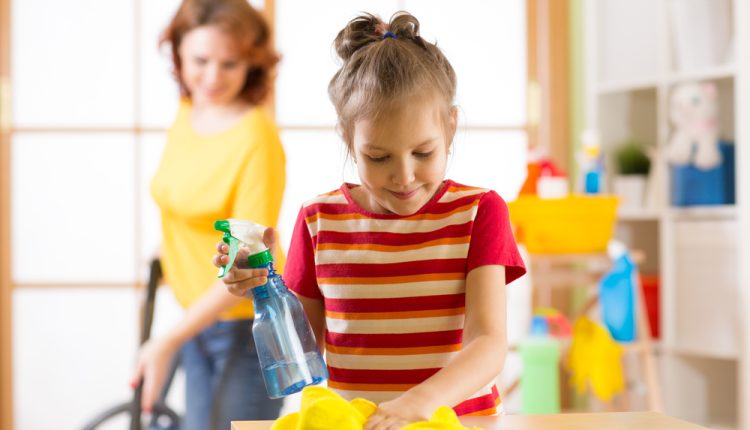Clean Team: Empowering Kids to Take Part in Household Chores
Introducing children to household chores is more than just a way to lighten the load on parents; it’s an essential part of their development. Engaging children in cleaning tasks teaches responsibility, teamwork, and important life skills. This process can be enjoyable and rewarding, fostering a sense of pride and accomplishment. This article explores effective strategies for getting children involved in housekeeping, tailored to various ages, ensuring the process is both educational and fun.
- Start Early and Set Clear Expectations
The journey to involving children in housekeeping begins at an early age. Toddlers as young as two can start with simple tasks like picking up toys. The key is to set clear, age-appropriate expectations. Young children are often eager to help and enjoy being involved in adult activities, making it the perfect time to introduce simple chores.
- Make It Fun
Turning cleaning tasks into a game is a fantastic way to capture children’s interest. Whether it’s racing to see who can pick up the most toys in a set time or creating a song about cleaning up, making the process fun increases engagement. Utilize colorful cleaning tools or create a chore chart with stickers to track progress, adding a visual and interactive element to the tasks.
- Consistency Is Key
Establishing a routine helps children understand that cleaning is a regular part of life. Consistent schedules not only make chores predictable but also help instill a sense of responsibility. Whether it’s making their bed every morning or setting the table for dinner, routine tasks teach children the importance of daily contributions to family life.
- Be a Role Model
Children learn by example. Demonstrating a positive attitude towards cleaning and showing that everyone in the household contributes to chores can inspire them to take part. When children see adults actively participating in and sharing the workload, they understand that cleaning is a collective effort.
- Use Age-Appropriate Tasks
Assigning chores that match children’s developmental stages ensures they are capable of completing them successfully. For younger children, this might include putting toys away, dusting low surfaces, or helping to feed pets. Older children can take on more complex tasks, such as vacuuming, doing laundry, or preparing simple meals. Ensuring tasks are within their ability builds confidence and avoids frustration.

- Offer Guidance and Appreciation
Initially, children will likely need guidance to perform tasks correctly. Demonstrating how to complete a chore, followed by doing it together, and then allowing them to try independently, can be an effective teaching method. Recognizing their efforts and achievements, no matter how small, with praise or rewards fosters motivation and acknowledges their contribution to the family.
- Incorporate Learning Opportunities
Cleaning can be educational, providing opportunities to learn about organization, basic math through measuring laundry detergent, or science when discussing germs and the importance of hygiene. Engaging children in discussions about why tasks need to be done can deepen their understanding and appreciation for cleanliness.
- Foster Teamwork
Creating a family cleaning day where everyone tackles different chores around the house can promote teamwork and improve efficiency. It also makes cleaning a shared responsibility and offers an opportunity for family bonding.
- Offer Choices
Allowing children some choice in their chores can empower them and increase their willingness to participate. By offering options, children feel more in control of their tasks and are more likely to engage with them positively.
Involving children in housekeeping is a valuable part of their upbringing, teaching them responsibility, discipline, and teamwork. By starting early, making chores fun, and setting clear expectations, parents can successfully integrate children into the household’s cleaning routine. Remember, the goal is not perfection but to instill good habits and attitudes towards cleaning that will serve them well throughout life. With patience, encouragement, and consistency, children can learn to appreciate the value of a clean and organized living space.

